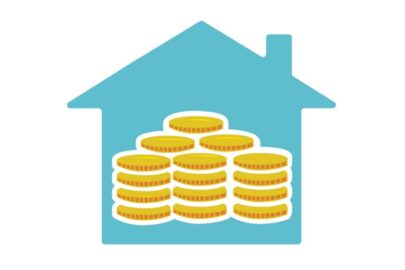Price of homes in England have risen at twice the rate of pensioner households’ disposable incomes over the past 20 years – far exceeding the gains pensioners have seen from other staples of retirement income such as the state pension, investments, occupational pensions and other earnings, according to new research from the Equity Release Council.
Analysis of the latest data from the Office for National Statistics reveals that pensioners’ household incomes increased by 66% in real terms between over the last 20 years, from £12,664 to £21,026 a year. Over the same period, inflation-adjusted house prices in England increased by 148% from £82,100 to £203,360. This figure is now nearly 10 times the size of a typical pensioner’s household income (9.7), up from 6.5 times pensioner income.
Inflation adjusted pensioner incomes and house prices, 1994/5 – 2014/5:
| 1994/95 | 2014/15 | Change | |
| Average pensioner households’ disposable income | £12,664 | £21,026 | 66% |
| Average English house price | £82,100 | £203,360 | 148% |
Fluctuations in the housing market mean that the growth in house prices, relative to pensioners’ income, has not been linear during this time. The rapid rise of house prices in the mid-2000s saw the average house price rise to an inflation-adjusted £224,313 in 2006/7 – nearly 12 times the then average pensioner income of £18,957 – before the gap narrowed slightly in the aftermath of the financial crisis to 9.4 in 2010/11.
However, recent years have seen house prices grow faster than pensioner incomes and the gap widen again. Between 2012/13 and 2014/15 – the latest year where data is available – the average house price grew 10% from £184,080 to £203,360 (a rise of £19,280) once adjusted for inflation while the average pensioner’s income grew 5% from £19,989 to £21,026 (an increase of £1,037).
Nigel Waterson, chairman of the Equity Release Council, said: “House prices have experienced dramatic growth over the past two decades, which has given many homeowners’ equity a significant boost. Many older people have seen the value of their home increase at a far greater rate than pensioner incomes, which has game-changing implications for how people make plans to fund their retirement.
“While the growth in house prices has not been linear or universal, strong market fundamentals mean housing equity is likely to remain a sizeable asset for the foreseeable future. It means housing wealth has an indispensable part to play in all discussions homeowners have about financial wellbeing in retirement.
“Government must act to encourage people to think through their options holistically, rather than focusing exclusively on savings and overlooking other choices that could boost their prospective retirement income.”
Over the last 20 years as a whole, house prices have grown visibly faster than traditional staples of pensioner income. The 148% increase in house prices once adjusted for inflation has outpaced the growth of pensioners’ investment income (which fell 20%), state pension income (which increased 59%) , and income from private pensions/annuities (which increased 114%).
Inflation adjusted house prices vs. other sources of pensioners’ income, 1994/5 – 2014/5:
| Income source | Value in 1994/5 (% of pensioner income) |
Value in 2014/5 (% of pensioner income) |
Change in value |
| State Pension | £5,637 | £8,954 | 59% |
| Cash benefits excluding state pension | £2,233 | £2,273 | 2% |
| Private pensions, annuities | £4,783 | £10,250 | 114% |
| Investment and Other income | £2,048 | £1,636 | -20% |
| Income from employment | £455 | £719 | 58% |
| Average total gross income | £12,664 | £21,026 | 66% |
| Average house price | £82,100 | £203,360 | 148% |
Waterson added: “The mix of retirement income sources has shifted considerably over the past 20 years, with investment income outpaced in growth terms. Investment income now makes up a lower proportion of pensioner incomes while occupational pensions, personal pensions and earnings have all taken on bigger roles.
“However, the long-term rise of house prices over this period means many pensioners who own their own homes have effectively been investing – intentionally or otherwise – in an asset that is capable of significantly boosting their finances in later life, either by helping meet one-off expenses or providing regular amounts to top up their income.
“With economic turbulence affecting investment returns and putting government finances under added pressure, housing equity is likely to be an increasingly important source of income for pensioners for years to come.”
